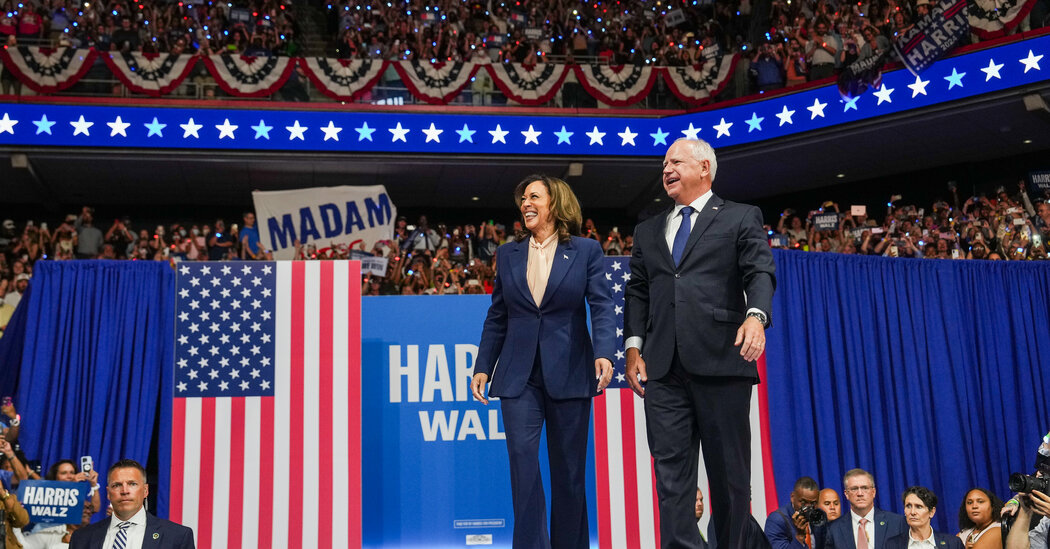If Gov. Tim Walz has achieved anything after 18 years in public office, it has been to convince many of his fellow Minnesotans that he is decidedly not weird.
On Tuesday, Annakeiko Reichel-Frink, a teacher from Mankato, Minn., called Mr. Walz “a very normal human being.” Maria Bevacqua, a college professor from the same small city, where Mr. Walz once taught at the high school, described him as “somebody you would bump into at the grocery store.” Adam Lueth, a college student who is leaning toward the Republican ticket, said that Mr. Walz, a Democrat, comes across as “a genuine guy.”
Mr. Walz was thrust into the national spotlight on Tuesday when Kamala Harris, the Democratic presidential nominee, announced that he would be her running mate. The second-term governor seemed to rocket to the top of the list after he used one word quite effectively against Donald Trump, the Republican candidate: He was simply being “weird.”
Mr. Walz has succeeded in projecting an avuncular, affable, relentlessly normcore image to Minnesotans. But on Tuesday, in interviews across the state, voters also seemed less than convinced that Governor Walz had succeeded in rising above partisanship, or in uniting the state as “One Minnesota,” as his 2018 campaign slogan put it.
,
That perceived lack of unity may partially be the result of Mr. Walz’s political formula, which has tended to serve up dollops of Minnesota nice over an ambitious progressive policy agenda, one that has its roots in Minnesota politicians like Hubert Humphrey or Walter Mondale.
But it may also be the case that a nice-guy candidate — even one whom voters could imagine having a beer with — has limited power to charm nowadays, when hot tempers and invective seem to be the rule.








